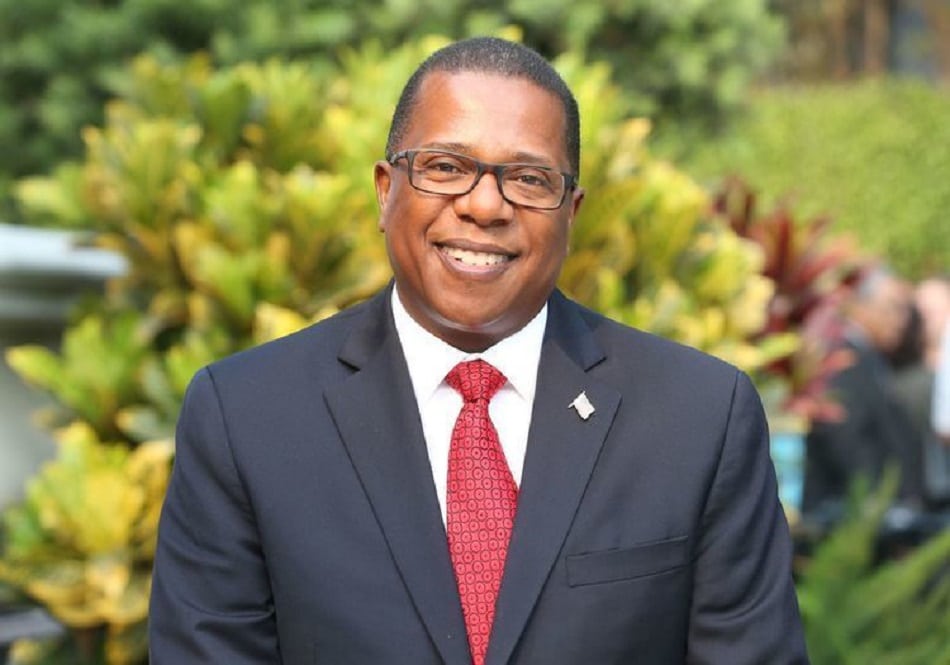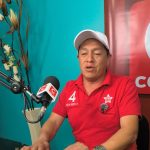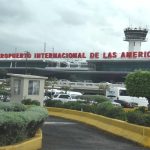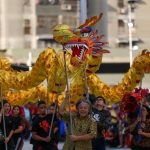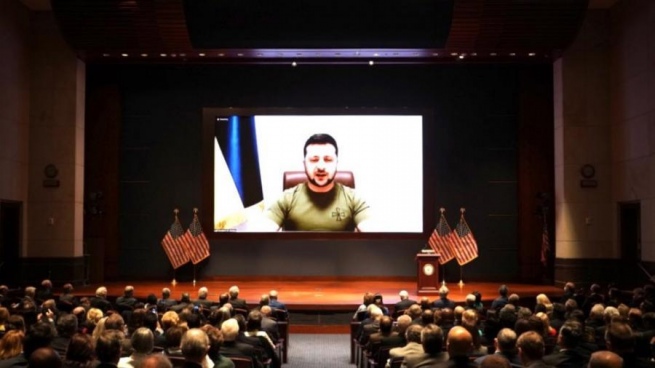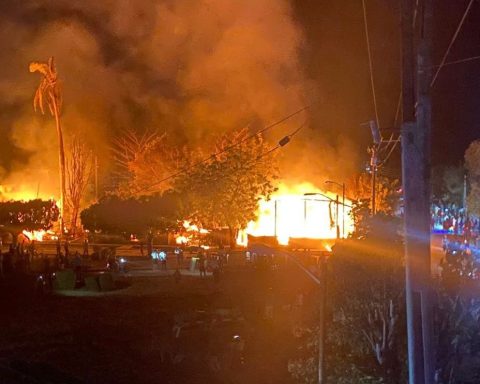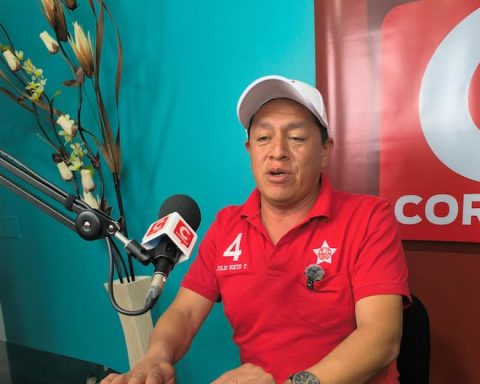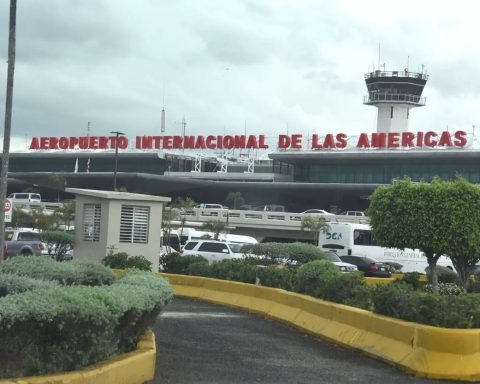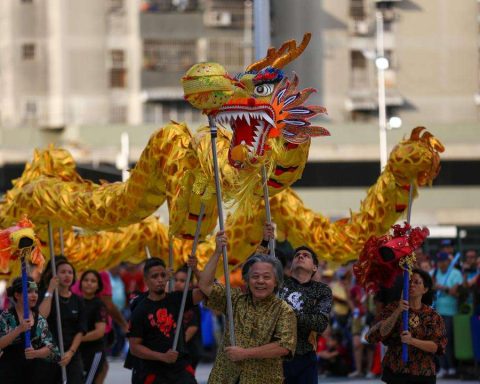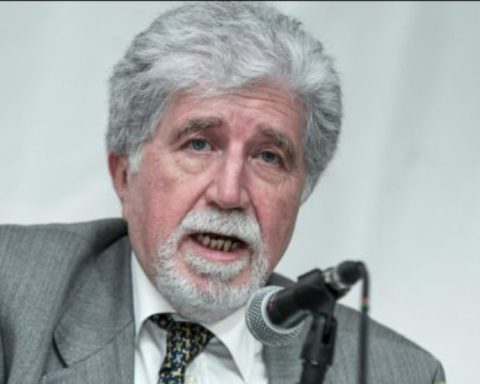Nicaragua is, in practice, excluding itself from the trade agreement with the United States, Central America and the Dominican Republic (DR-Cafta), said the Undersecretary for Western Hemisphere Affairs of the United States, Brian A. Nichols, during an intervention on Wednesday in an event of Inter-American Dialogue.
“Nicaragua is, in practice, excluding itself from the agreement, by not respecting the principles of democracy, human rights and the rule of law that investors find crucial when deciding where to do their economic activities,” Nichols said in a conversation on Central American migration, chaired by michael shifter and moderated by the Nicaraguan academic Manuel Orozco.
Nichols lamented that the Nicaraguan Executive does not seem interested in working with the United States on trade issues. According to official data, the North American nation is Nicaragua’s largest trading partner with exports of around 3.56 billion dollars in 2020, that is, almost five times more than the second partner, which is Central America, with 794 million dollars. .
The United States is Nicaragua’s largest trading partner, accounting for a third of imports and 60% of total exports.
This business relationship creates jobs, better wages and economic growth for the people of Nicaragua. pic.twitter.com/SNG2mqqWMw
— USEmbassy Nicaragua (@USEmbNicaragua) February 9, 2022
The review of Nicaragua’s participation in the trade agreement is part of the powers granted to the Biden administration by the law to Strengthen Nicaragua’s Adherence to the Conditions for the Electoral Reform of 2021known as Reborn by its acronym in English, enacted on November 10 last year.
According to Nichols, promoting democracy and a more prosperous and secure Central America is in the interest of US national security. President Joe Biden signed the Renacer law two days after Ortega was re-elected for a fourth consecutive term, since He was installed in power in 2007, thanks to a process marked by irregularities and human rights violations.
The votes of last November 7 in Nicaragua took place with the electoral apparatus under their control, without electoral competition after imprisoning the seven opposition pre-candidates and with a strict regime of police control over citizens, which caused the rejection of the international community, which for the most part regarded the results of these votes as “illegitimate”.
The regime has 177 political prisoners, of which just over 40 were arrested since May last year in the escalation of repression against members of civil society, politicians, businessmen and media.
Nichols highlighted the significant increase in Nicaraguan migration to the United States in recent years and its direct relationship with the lack of democracy in Nicaragua.
For the senior US official, the country is a discouraging example in the region, because it experienced “the descent to a complete dictatorship” in 2021, which unleashed a wave of irregular migration driven by poverty, oppression and hopelessness.
“This should serve as a reminder of what happens when elites systematically dismantle democratic institutions,” added the senior State Department official.
Almost 25,000 apprehensions of Nicaraguans at the US border.
In 2021, a record number of more than 87,000 apprehensions of Nicaraguans was registered at the US borders with pronounced peaks after the hunt for opponents and citizens unleashed by the Ortega and Murillo regime prior to the November 7 election.
In 2022, the strong flow of Nicaraguans seeking to enter the United States continues: the figures for January and February add up to 24,992 apprehensions of people of Nicaraguan origin at the border, according to CBP data.
The migration policy known as “Stay in Mexico” or MPP (Migrant Protection Protocols), which was reinstated in December of last year and which disproportionately affects Nicaraguans, has “endemic flaws and imposes unjustified human costs,” said Nichols, showing critical of this policy that dispatches migrants, including asylum seekers, and which began to be applied again as of December 2021. Since then, 60% of those returned to Mexico are Nicaraguans, the rest are from Venezuela, Colombia, Cuba and Ecuador.
Nichols did not refer to this data, but he did highlight that the MPP program was restored by the Supreme Court and not by decision of Biden, who stopped applying it in February 2021, when he arrived at the White House. It was former President Donald Trump who instituted this policy that returned more than 70,000 migrants to Mexico between January 2019 and February 2021, a situation highly criticized by human rights defenders because it exposed migrants to serious danger in Mexico.
“We are working diligently to mitigate the consequences of the failures of the program (MPP), within the limits of what the Court decided, and in our strategy of focusing on the root causes of migration, we believe that it is the appropriate approach”, Nichols assured. “President Biden announced his vision of a comprehensive approach to regional migration and the MPP was not part of the plan,” he added.
The Court’s ruling to reinstate the MPP has been appealed and there could be a new decision in July, meanwhile US immigration authorities return asylum seekers daily at the border with Mexico.
One of the points through which dozens of migrants are returned is El Paso, Texas- Ciudad Juárez, Chihuahua. CONFIDENTIAL published this week a special after the on-site coverage of Nicaraguans stranded in Juárez, where they must wait for their asylum requests to be resolved in US courts. Meanwhile, Nicaraguan migrants fear for their lives, having witnessed kidnappings, suffered extortion from Mexican authorities and other ill-treatment while crossing Mexican territory to reach the United States.
CONFIDENTIAL wrote to the Office of Customs and Border Protection of the United States (CBP, for its acronym in English) and Department of Homeland Security (DHS, for its acronym in English) to find out if there is a particular reason why Nicaraguans are the majority of asylum seekers under MPP, but as of the date of publication there has been no response.
Reiterates demand for release of prisoners of conscience
Nichols explained that the US has collaborated with other partners in resolutions of the Organization of American States (OAS) and numerous sanctions have been issued against the democratic drift of the Ortega-Murillo regime —including the military and members of the presidential family— . He noted that there is no simulation of democracy in Nicaragua.
“The entire hemisphere will continue to denounce the actions of the Ortega Murillo regime, and as we move forward, I hope they see that this does not have to be an inevitable path, that doing things like immediately releasing political prisoners, allowing open space for dialogue, they can return to the international system and find a way for free, fair and transparent elections in that country. I hope they take into account the request of the entire hemisphere, it is not just ours, we will continue to press for it, ”he assured.
Russian influence in the region before the invasion of Ukraine
The undersecretary made it clear, when asked questions related to the issue of the Russian invasion in Ukraine, that there have been threats from Russian officials about their influence in the region. According to him, the United States finds it “unacceptable” and will defend the national interest.
Russia has as allies Nicaragua, Venezuela and Cuba. Ortega supported on February 21 last the sending troops to Ukraine and justified the invasion, endorsing the decisions made by his counterpart Vladimir Putin. He did it when the country was commemorating the 88th anniversary of the treasonable assassination of General Augusto C. Sandino, a symbol of anti-interventionism in the region.
Nichols recounted that in July 2021, the Biden administration launched a strategy to address the economic, governance, and security factors of irregular migration in Central America. As part of those efforts, Vice President Kamala Harris met with private sector leaders, resulting in $1.2 billion in commitments to create new jobs and opportunities.
However, the undersecretary lamented that “corrupt and undemocratic actors seek to maintain their grip on power and hinder efforts to increase economic equality, improve democratic governance and build safer communities.”
For Nichols, the US perceives a democratic setback and an erosion of the rule of law and spoke about the need for a transparent process for the selection of an attorney general in Guatemala.
The US official also made another call to the administration of Nayib Bukele, in El Salvador, to strengthen transparent governance, including the separation of powers, and assured that they work in a productive relationship with President Xiomara Castro in Honduras.
Nichols recalled that they added more than 60 Hondurans, Salvadorans and Guatemalans to their list of corrupt actors.
